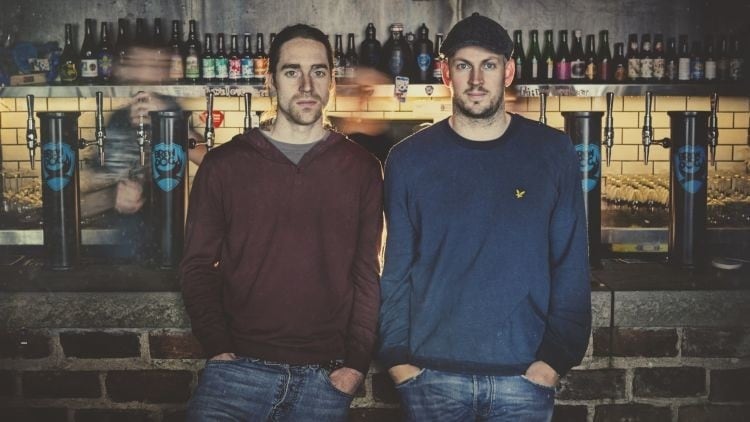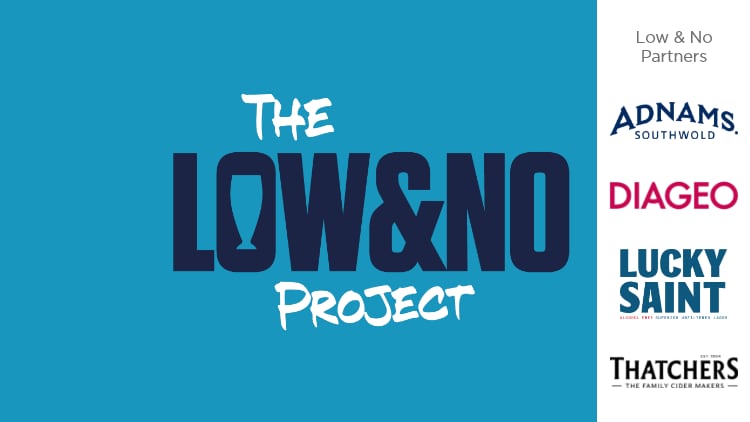It’s culture, assets and position may wobble or alter slightly, but it carries on like a super-tanker, moving forward.
But BrewDog wasn’t like other companies. That used to be the whole point of it. At its peak, the industry hated BrewDog almost as much as beer drinkers adored it.
To me, they always felt more like a band than a brand – not least because they wanted to be seen as punks.
Bands are different. When none of the original members remain, many former fans insist that it’s simply not the same band any more, and that the newcomers who have taken over, singing songs they never wrote or had hits with, are no better than a covers band.
The departure of Martin Dickie feels like the last member of the original line-up has left the building. The entity that remains may own the rights and assets of BrewDog, but it has lost the spirit and soul that once defined it.
To be fair, that process began years ago – even before the allegations of bullying and coercive behaviour that finally destroyed BrewDog’s waning reputation in the craft beer world.
When I worked for an ad agency pitching for BrewDog’s first mainstream advertising account in 2019 – when Dickie and co-founder James Watt were still in charge – the company we were presented with was not the one I recognised. The professional marketing executives who briefed us told us that BrewDog was a beer for everyone.
Company history
The execrable ad that the successful agency came up with basically just said this over and over, with pictures of as many different types of people drinking the product as possible (not that I’m a sore loser or anything).
They told us that their main competitor was Carling, not other craft beer brands. They scolded us for coming up with aggressive ideas for stunts and ads that attacked the mainstream beer industry, insisting not only that BrewDog did not want to adopt this approach, but also claiming that it never had.
That BrewDog rose to fame with viral videos of Watt and Dickie denigrating and even blowing up their competitors’ “crap beer”, some of which are still on YouTube, means the executives were either dishonest, or didn’t know the history of their company and founders.
BrewDog were about a counter-cultural attitude. They were also about growth at all costs. The stats from the early 2010s were jaw-dropping. But such incredible growth is never sustainable – if it were it would ultimately swallow the world.
It was fuelled by constant investment, first from their fans via the Equity for Punks scheme, and then via private equity outfit TSG Consumer Partners, putting in approximately £110m in 2017.
BrewDog has reported operating losses since 2019. According to the FT, it now has net debt of £239m. TSG want a return on their investment.
So BrewDog was already struggling when, in 2021, up to 300 former staff published an open letter accusing the company of creating a “culture of fear” and a “toxic attitude” to junior employees. Initially Watt, as the figurehead and spokesperson, responded by admitting that he “didn’t always get things right.”
At other times he became defiant, vigorous in his personal defence. At one point, he appeared to attempt to explain his behaviour by revealing he had been diagnosed with High Functioning Aspergers (which is on the autism spectrum) and ADHD.
Dickie remained silent throughout. The initial allegations referred to a “cult of personality” built around both men, but specific personal allegations were focused on Watt’s behaviour. After Dickie’s departure, some former employees took to social media to say that he was “part of the problem.”
For others, his refusal to say anything about the alleged actions of his co-founder (some close to the business claim they hadn’t been on speaking terms for years by this point) was enough to condemn him too.
Punk upstart
I’ve known Watt from when BrewDog was founded, and Dickie from before then, when he was one of the two founding brewers at Thornbridge in 2005. Whereas Watt was a showman and businessman, Dickie struck me as a shy but decent man who just wanted to get on with brewing beer and, later, distilling spirits.
If he was innocent of perpetuating a toxic culture of fear, should he have publicly distanced himself from it? Probably. But starting a public war of words with your co-founder may well have made a bad situation for BrewDog even worse. It will be interesting to see if he breaks his silence now he has left the company.
Without either co-founder, BrewDog has completed its journey from punky upstart to big brewing corporation. Their recent defence against the story of Punk IPA being delisted from 2000 pubs was that they were mainly big chains, and they’re gaining distribution in freehouses.
But they also stated that Punk IPA isn’t even their main priority any more. That honour now goes to Wingman. A session IPA at 4.3%, the company call it a “maverick” despite then describing it “as a smooth ride of mellow tropical fruits, piney notes and a sharp citrus aroma… Refreshing, infinitely drinkable.” It’s difficult to see what’s maverick about such a beer in 2025.
Their other current bestsellers are hazy pales and IPAs, and session lagers that follow the market they once trailblazed. The barrel-aged programme, the limited edition Abstrakt range and the once-much-trumpeted sour beer facility seem to be long gone.
You could argue this shows BrewDog losing its way. More likely, they have a very clear direction towards the heart of mainstream beer, as I learned during that unsuccessful advertising pitch.
As a brand, BrewDog has lost the craft beer audience who made it famous, and needs to grow outside the craft bubble. In the provincial high streets where new bars are opening, I suspect few people have heard of Watt or Dickie, or the long history of controversies that surround them.
Maybe this is why Dickie seemed to lose interest in brewing long before he left, turning his attention more towards the distilling division of the business. I can only speculate. But I’m far more interested to see what Martin Dickie does next than I am what BrewDog does next.




